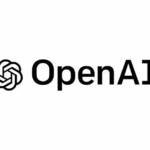The U.S. government is nearing the completion of new regulations that will restrict certain American investments in AI and other sensitive technologies in China. These rules are part of an executive order signed by President Joe Biden in August 2023, aimed at preventing U.S. investors from inadvertently supporting China’s military advancements.
The proposed regulations specifically target outbound investments in AI, semiconductors, microelectronics, and quantum computing. According to a government update, these rules are currently under review by the Office of Management and Budget, which typically indicates that they may be published within the next week.
Former Treasury official Laura Black, now a lawyer at Akin Gump in Washington, noted that the timing of the rule publication may be strategic, suggesting, “It looks to me like they are trying to publish this before the election,” referring to the upcoming U.S. presidential election scheduled for November 5, 2024. Black also mentioned that the Treasury Department usually allows a minimum of 30 days before new regulations take effect.
The Treasury Department had previously released proposed rules in June, which included a range of exceptions and invited public comments. These draft rules placed the onus on U.S. individuals and companies to determine which transactions would be restricted. The proposed regulations included outright bans on certain investments in cutting-edge technologies that could be used for military purposes.
The rules require U.S. investors to notify the Treasury Department about specific investments in sensitive technologies. This includes AI systems and semiconductors that are not already prohibited. The notification requirement aims to ensure that investments do not contribute to the development of military capabilities in China.
All of this brings to the front the concerns the US administration has for the threat to its national security, posed by the military, intelligence, surveillance, and cyber-enabled applications of these technologies, particularly when developed by countries of concern, such as China.
The proposed rules also outlined certain exceptions. Publicly traded securities, such as index funds and mutual funds, as well as specific limited partnership investments and syndicated debt financings, were among the exceptions noted in the draft regulations.
In addition to these investment restrictions, the U.S. has already implemented sweeping export controls aimed at limiting China’s access to advanced semiconductor technologies, particularly those used in AI applications. These measures began in October 2022 and have included significant tariffs on Chinese imports.
The impending regulations reflect the Biden administration’s broader strategy to restrict the flow of U.S. capital, technology, and expertise into China. This strategy is designed to safeguard U.S. national security and prevent the enhancement of China’s military capabilities through American investments.
With the rules expected to be released soon, stakeholders in the investment community are closely monitoring the developments. Black anticipates that the final regulations will provide further clarity regarding the scope of coverage over AI and the thresholds for limited partners involved in these investments.
The U.S. government’s actions come amid growing concerns about China’s military modernization and its implications for global security. China does not seem to be the only one in the focus, however. Reports from last week suggest that the US will seek to restrict export of AI chips to Persian Gulf nations, which are investing in AI data centers as well.
(Image by Martijn Boer)




